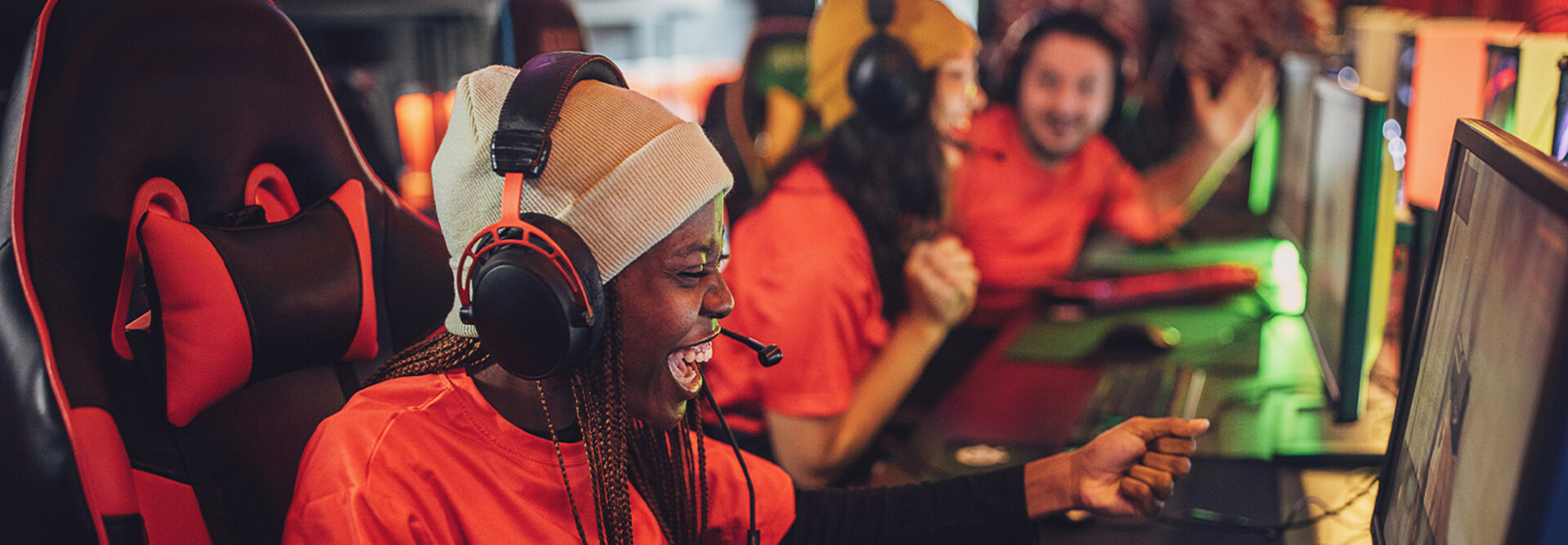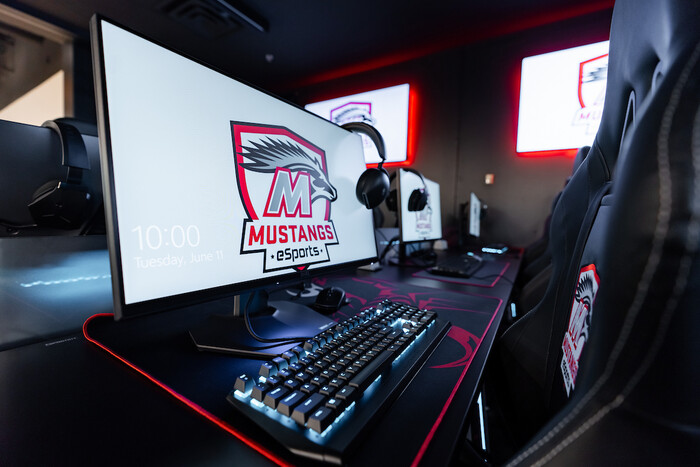At Montgomery County Community College, we’ve seen this trend unfold firsthand. As an esports early adopter, our program has grown significantly over the years. Starting with 12 students when the program launched in spring 2020, we now have 170 participants in the program across our campuses. Our MCCC Mustangs eSports team recently won a fourth NJCAA esports title, making our program a top destination for community college recruits and esports fans in Pennsylvania and beyond.
For schools interested in growing their offering, here are eight steps to attract athletic talent and draw students into the program:
- Invest in the latest tech: Developing a robust technology infrastructure is paramount to recruitment success. Student-athletes want to see top-of-the-line consoles, controllers, headsets and equipment that will help them reach their full potential. Gaming technology should be on its own LAN with a direct connection to high-speed internet to limit potentially disastrous interruptions during gameplay. Top-of-the-line computer systems should have 32-plus gigabytes of RAM, multiple terabytes of storage and the ability to support all the latest games.
- Provide exciting and engaging viewership opportunities: Your technology investments should not stop at the gaming setups. Colleges need to make student-athletes feel like professionals by showcasing their talents for all to see through streaming services and in-person events. Establish a professional-looking streaming platform and give students opportunities to commentate on the performances. Invest in microphones, webcams, audio splitters and popular streaming platforms to elevate production values further. These streams will build buzz across campus and showcase your team’s talents to the public.
RELATED: What’s next for esports in higher education?
- Create engaging gaming spaces: Beyond the technology, higher education institutions should create compelling physical spaces in which esports teams can practice and compete. These areas should be highly visible to the rest of the school and be arranged in ways that facilitate in-person viewing. The facilities should give student-athletes a space to showcase their skills and build awareness of the program across campus. Also, a simple but often overlooked aspect of building an esports team is buying jerseys for student-athletes to provide the team with a unified look.
- Hire top tech talent: Optimizing and maintaining esports facilities and equipment will require sophisticated technology talent. Like any sport, it is important to hire coaches and support staff with knowledge of the equipment required for competitive gameplay. Serious programs should also consider hiring IT staff with a gaming background to further support the program as it grows.
- Build your social presence: Esports recruits almost always ask about the school’s social media following. Student-athletes want to make sure their talents will be captured and showcased on social media. This is one of the most important ways for student-athletes to build their personal brands and set themselves up for a potential career in esports. They want confidence that the school they play for will help them gain public awareness, build a following and cultivate a reputation in the sport.












